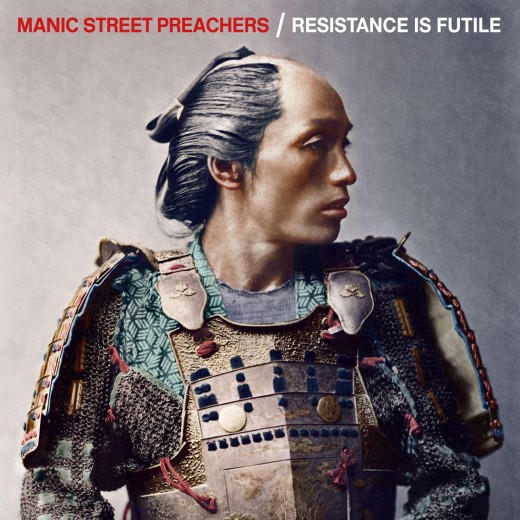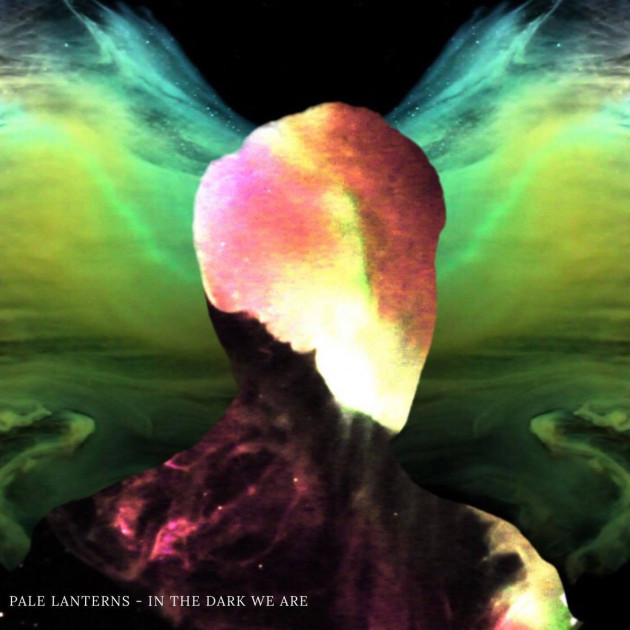It’s strange to think that of all the bands who could have lasted long enough to unquestionably become an institution, it was the Manic Street Preachers who claimed the honour. The Welsh punk rockers began their career with middle fingers firmly erected and a depth of knowledge to match their vicious tongues.
This is a band who on their first album had Public Enemy’s The Bomb Squad and porn star Traci Lords sitting effortlessly alongside Slyvia Plath, Confucius, and Phillip Larkin. They claimed that would sell “16 million copies” of their debut and then break up in the purest distillation of rock and roll imaginable. The fact they’re still kicking is the folly of the youth. It’s been over 25 years since their emergence with Marilyn Monroe prints, tattoos and messages of authenticity carved into their arms. In that time, they’ve released what might the be darkest LP of the 1990s then immediately followed it up with pure pop goodness. They earned the first number one of the millennium and then destroyed the master tapes, became the first UK band to play to Castro in Cuba and somehow revisited their dark past and managed to craft a record of equal quality. They scored a top three hit with a song about failing to save a suicidal friend.25 into their career, the band tore up their own rulebook with a duo of albums that moved between delicate acoustic balladry and ice cold krautrock. The simple fact is that three boys from the Valleys have done more in the space of one career than virtually anyone. But from here you end up with a question: What comes next? If their latest LP, Resistance Is Futile, is anything to go by, that is a question that Manics haven’t really found an answer to.
The group’s work has typically slid between the artistic and anthemic. At their best, they’ve been able to meld the two seamlessly. But on their weaker efforts, they’ve tended to belong to just one category. In the case of this album, they’re comfortably within the anthemic camp. That means we’re getting stadium-sized hooks, gargantuan emotions and a Nigel Tufnel approach to nuance. The band spent the last year on an anniversary tour, celebrating the impossibly successful Everything Must Go album. This seems to be the Rosetta Stone to understand the motivation behind Resistance. They very clearly fell back in love with that classic collection on the road and wanted to re-explore that territory. There’s nothing really wrong with this kind of reappraisal though. The trio has proved as much with their Journal For Plague Lovers album.
The issue here though is that this feels much more like a reiteration than a reexamination. There’s no new ground broken here. Listen to the compressed drums on ‘Distant Colours’, the synth riff on ‘International Blue’ or the strings on ‘People Give In’ and ask yourself if these cuts would be out of place on oEverything Must Go or Postcards From A Young Man. They wouldn’t and that’s quite disappointing. In other hands, it’d make the experience a slog to get through. Fortunately, while there is nothing here which they’ve not tried their hand at before, the pieces themselves are inherently enjoyable. ‘Hold Me Like Your Heaven’ has a gorgeous rhythm section that effortless dances with the piano and synthesizer lead, while the aforementioned ‘International Blue’ has a sublime chorus riff that is pure Manics. ‘Sequels of Forgotten Wars’ has a delightful use of cowbell.
These are the Manics though and a big part of what has made them so beloved are their words and their message. This is a socially and historically conscious group whose output has always represented some of the better examples of lyricism in contemporary rock music. This album is no exception. As the title of the album suggests, there is a unifying theme here about the idea of a struggle against some kind of oppressive force. Wisely, the group cast their net quite wide here. One of the strongest songs here, ‘Dylan and Caitlin’, examines the marriage between Caitlin and Dylan Thomas, their relationships to alcohol and their co-dependence. Using the fantastic vocal work of The Anchoress, the piece offers a beautiful back and forth between these two people so crippled by their addictions that they could only function as a disfigured duo.
Similarly, ‘The Left Behind’ tells the story of those living in the final moments of the earth raging against the dying of the light, while ‘Broken Algorithms’ documents our societal destruction as a consequence of an over-reliance on technology. On one level there’s an undeniable melancholy with these tales that adds a certain heft to the proceedings. But crucially, there are the occasional glimmers of some kind of hope and purpose here. A big part of that comes from the performances. On ‘The Left Behind’, the band uses bassist Nicky Wire’s simple, unassuming voice to lend the words a more human air. Meanwhile ‘Algorithms’ is a balls to the wall punker designed to get your energy up and give you a soundtrack to stand against this decay.
The best demonstration of this facet is ‘Liverpool Revisited’, which deals with the impact of the Hillsborough and the shadow it will permanently cast upon the city and those who’ve lived through it. But rather than waddling in that misery, the group find a beauty in the struggle of those survivors who remained strong in their quest for justice and were vindicated in the end. It’s moments like these that make the collection much more rewarding, as the joy is earned in spite of the pain and not because of it.
In the end, this is one of their weaker efforts by quite some margin. While it wouldn’t rank as low as Lifeblood or Postcards from A Young Man, it is a lacking despite a few moments of intrigue and impeccable quality. This is what you expect a band to sound like 13 albums deep into their career: ordinary. There is still fuel in the tank and if their previous two LPs are anything to go by, and this will just be an unfortunate blip. The Manics have still got the ability to deliver a powerful message, they’ve just settled on an ineffective way of saying it. Much like the Samurai that adorns the cover, they’re not the young men they once were. But they are still a force to be reckoned with. Will Murphy






